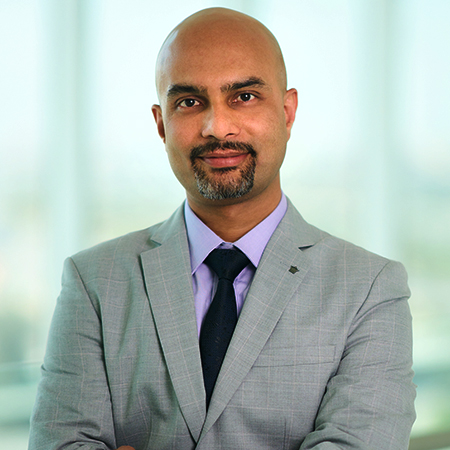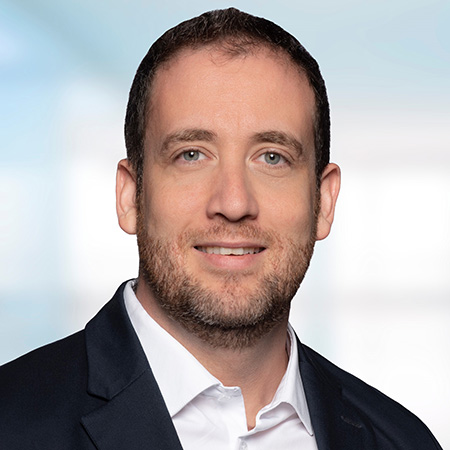King’s College Hospital London – Dubai is undergoing a technological transformation and the engagement with Oracle Cerner as part of this project is to remote-host clinical applications on Oracle Cloud Infrastructure.
King’s College Hospital London – Dubai and Oracle Cerner have partnered to accelerate innovation. As part of the agreement, Oracle Cerner will utilise Oracle Cloud Infrastructure services via the Oracle Cloud Dubai Region to operate and manage the upgraded and enhanced electronic medical records system on behalf of King’s College Hospital London – Dubai.
King’s College Hospital London – Dubai is a renowned teaching hospital in London with over 175 years’ experience, that is now present in the UAE. Its multi-specialty medical centres are based in Jumeirah and Marina in Dubai and its 100-bed multi-specialty tertiary hospital in the Dubai Hills estate.
This will be the first UAE-based cloud deployment by Oracle Cerner in the region. It has the potential to support more than 10,000 concurrent users and will create a new care delivery model that can provide real-time coordination and information exchange among multiple providers, patients, and locations in the country.
Digital transformation is inevitable for enterprises in all industries including healthcare. Says Jyoti Lalchandani, IDC’s Group Vice President, and Regional Managing Director META at the recent Directions 2023, “In order to navigate storms of disruption, organisations will need to invest in strengthening their digital resiliency, so they are better positioned to succeed in new market environments as conditions continue to change.”
Implementation of further digitalisation in critical areas such as customer experience, operations, and financial management, together with a more rapid shift to a digital business approach, will be key to separating the thrivers from the survivors.
IDC expects to see digital transformation spending as a share of overall IT spending reaching 43% in 2026, up from 30% in 2021. And spending on public cloud services will grow at 25% to surpass $10 billion in 2023, and SaaS apps will account for 43% of public cloud software spending in 2023.
Remarks Himanshu Puri, Head of Information Technology at King’s College Hospital London – Dubai, “Healthcare today is dependent on technology and innovation. To provide advanced medical care, hospitals need to evolve to host a large amount of clinical data and build the capability to support preventive and population health objectives.”

King’s College Hospital London – Dubai clinicians are modern and tech-savvy with a wealth of international experience and are keen to adapt to newer innovations. This is an opportunity to further improve the Hospital’s technology which will result in the reduction of patient delays and improved user experience.
For King’s College Hospital London – Dubai, Oracle Cerner’s cloud offering provides a cost-efficient, secure, and scalable foundation on which to grow. A mature digital ecosystem with these capabilities can pass a multitude of benefits to patients, community, and the region.
The Oracle Cloud Dubai Region will assist King’s College Hospital London – Dubai in driving new advancements and boosting efficiencies by helping reduce its operational and financial obligations. The advancements will cover computing, storage, networking, database, analytics, mobile services, and more. The transition to Oracle Cerner’s cloud solution is also expected to reduce the hospital’s IT expenditure and regain valuable data centre space at its facilities.
The engagement with Oracle Cerner is to remote-host clinical applications.
Implementation starts with the creation of a temporary domain on OCI for King’s College Hospital London – Dubai.
What is remote hosting
With this managed service offering model, Cerner would remotely house, administer and manage the Cerner suite for electronic health records solutions. Remote hosting option provides the technology infrastructure, OS and required layered software, installation of software and resources to support remotely hosted solutions.
Clients access solutions and data by communicating with the hosting facility via a secure, highly available wide-area network using dedicated telecommunication circuits or a secured VPN leveraging the Internet. Cerner assumes responsibility for the performance, availability, and security of the system, all backed by service-level guarantees for system availability.
Remote hosting option provides performance, security, reliability, and scalability with a lower up-front financial commitment from the client. It allows healthcare organisations to leverage sophisticated IT solutions, while providing significant cost-savings and competitive advantages. Remote hosting option helps avoid depreciation and obsolescence of hardware and frees the client’s IT department to focus on their core business of providing quality healthcare.
There will be migration and optimisation of data, followed by change management and finally the flip.

Oracle’s cloud regions
Oracle Cloud Infrastructure is hosted in regions and availability domains. A region is a localised geographic area, and an availability domain is one or more data centres located within a region. A region is composed of one or more availability domains.
In October 2020, Oracle first announced availability of its second-generation cloud regions in UAE, termed as UAE East Dubai. And in November 2021, Oracle announced the opening of its second cloud region in UAE, termed as UAE Central, Abu Dhabi. The Oracle Cloud Abu Dhabi Region and the Oracle Cloud Dubai Region provide customers with business continuity and disaster recovery capabilities.
Emaar Properties, Emirates Post Group, DP World, DAMAC, Tahaluf Al Emarat, and Etisalat have been the early adopters and partners of the Oracle Cloud regions based out of UAE.
Most Oracle Cloud Infrastructure resources are either region-specific, such as a virtual cloud network, or availability domain-specific, such as a compute instance. Traffic between availability domains and between regions is encrypted. Availability domains are isolated from each other, fault tolerant, and very unlikely to fail simultaneously.
Because availability domains do not share infrastructure such as power or cooling, or the internal availability domain network, a failure at one availability domain within a region is unlikely to impact the availability of the others within the same region.
The availability domains within the same region are connected to each other by a low latency, high bandwidth network, which makes it possible to provide high-availability connectivity to the Internet and on-premises, and to build replicated systems in multiple availability domains for both high-availability and disaster recovery.
The project we are embarking on with King’s College Hospital London – Dubai is to move their on-premises, client-hosted technology stack onto OCI in a PaaS model deployment.
Disaster recovery, business continuity
Both Oracle Cloud regions in the UAE are built on Oracle Cloud Infrastructure, which enable customers to migrate existing workloads and data platforms or build new cloud native applications. Customers also have access to the full suite of Oracle Fusion Cloud Applications, as well as Oracle Autonomous Database, giving them the opportunity and choice to create the architecture that best suits their business needs.
Inside UAE, Oracle has a dual region strategy that enables customers to deploy resilient applications in multiple geographies for disaster recovery and compliance requirements, without having sensitive data leave the country. Customers that want to run critical systems of record in the cloud need fully independent cloud regions for disaster recovery purposes with multiple sites in the same country to meet data residency requirements. Today Oracle has 30+ cloud regions distributed globally.
UAE joins Australia, Brazil, Canada, France, India, Japan, South Korea, UK, and the US, that have two or more cloud regions inside their geographical boundaries.
For King’s College Hospital London – Dubai, this will be a gradual transition over time occurring naturally as part of their OCI –remote hosting option service.
Milestones and roadmap
King’s College Hospital London – Dubai is currently undergoing a big technological transformation, which includes a full technology refresh in network, servers, security, and process optimisation. The engagement with Oracle Cerner as part of this project is to remote-host only clinical applications.
In addition to hosting, King’s College Hospital London – Dubai is also upgrading to the latest HIS version available in the market. This will better the customer experience, and provider experience as well as enhance security, and improve the integrated systems for care.
Implementation starts with the creation of a temporary domain on the Oracle Cloud Infrastructure for King’s College Hospital London – Dubai. Then there will be migration and optimisation of data, followed by change management and finally the flip. The Hospital is targeting to accomplish these milestones before the end of this calendar year 2023.

Says Romel Khalife, General Manager, UAE and Kuwait at Oracle Cerner, “The project we are embarking on with King’s College Hospital London – Dubai is to move their on-premises, client-hosted technology stack onto the Oracle Cloud Infrastructure in a PaaS model deployment. The same solutions along with the necessary software, management, and maintenance will come along with this as would be with remote hosting option.”
“This is the current and near-term offering worldwide until a full SaaS model completes its full development. For King’s College Hospital London – Dubai and any remote hosting option clients, this will be a gradual transition over time occurring naturally as part of their Oracle Cloud Infrastructure –remote hosting option service.”
Additional return on investments includes improved system availability with increased service level protection, managed spending on hardware upgrades, storage, servers, and licenses as well as proactive monitoring and management of the system.
Oracle Cerner will own security and technology elements pertaining to the data centre, network, and patching the system. This will facilitate the hospital’s expansion plans as more assets will join its integrated healthcare network.
List of primary Oracle applications deployed at King’s College Hospital London – Dubai
- HealtheLife patient portal
- Cerner Health Information Management
- Content 360 Document Imaging with scanning and e-signature
- Document management through Cerner Archive for MultiMedia
- Physician Ambulatory solutions
- Laboratory suite, Gen Lab, Micro, Anatomic Pathology
- Pharmacy Inpatient and supply chain
- Radiology Management, Radnet
- Surgery Management solutions, Surgical Management, Anesthesia Management, Dept Scheduling Management
- Integrated bed side devices and lab device platform through Care Aware Solutions
- Physician clinical decision support and documentation
- Access Management, Registration, Scheduling,
- Advanced Care Documentation
- Medication Administration Record, Carnet



